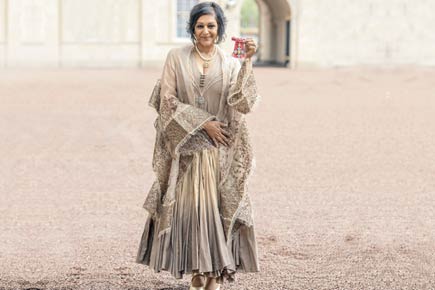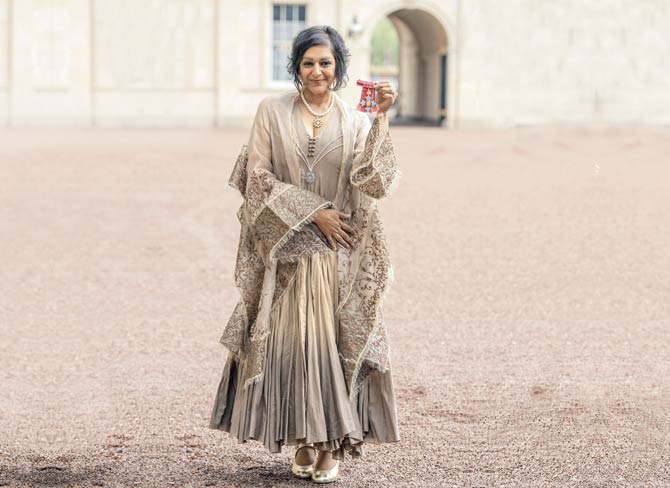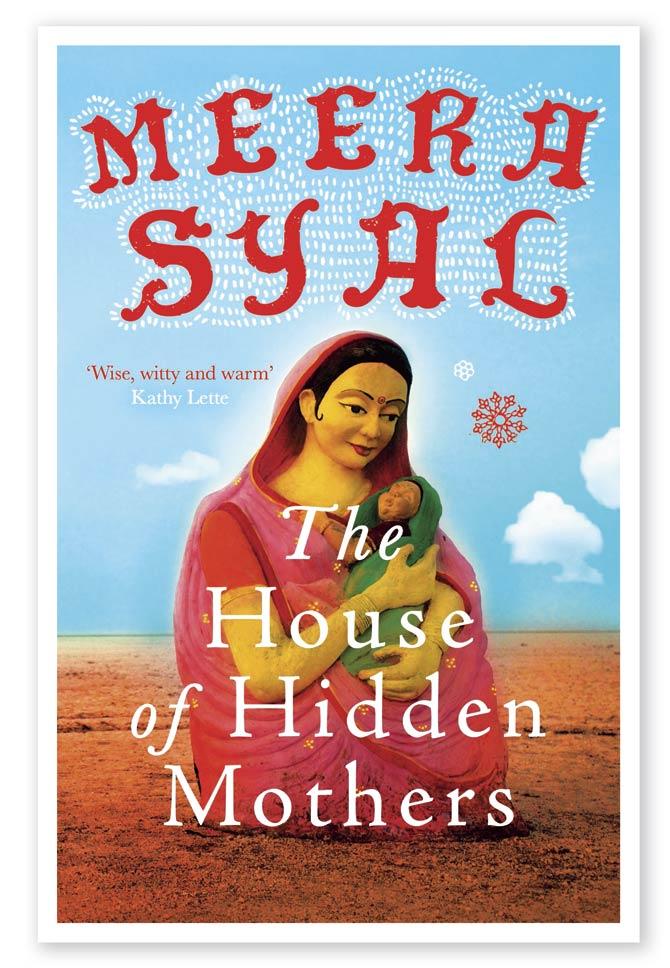UK-based author Meera Syal’s latest offering titled, The House of Hidden Mothers, is set largely in India and addresses topics like surrogacy, infertility, infidelity, feminism and a lot more

Q. What made you choose the subject of surrogacy?
A. I thought it was a perfect metaphor for exploring the complex and ever changing relationship between India and specifically, Britain, and for exploring so many areas, which currently interest me.

Meera Syal, after she was presented with her Commander of the British Empire (CBE) medal, awarded by the Prince of Wales at an Investiture ceremony at Buckingham Palace on May 6, 2015 in London, England. Pic/Getty Images
ADVERTISEMENT
How women feel about ageing, mothers and daughters, “blended” families and how they work, the exploitation and ownership of women’s bodies, the politics of fertility and the huge industry surrounding it and how the longing for a child can turn your life literally upside down.
But ultimately, what ripped me was that central relationship between two women from different worlds, who, for nine months of pregnancy, depend on each other to fulfill their dreams. What is that like, that intense life- changing connection and the delicate power balance between them?
I wanted to ask that question, and have the reader ask it too, is surrogacy a win-win exchange, where a wealthy infertile woman gets the child she desperately wants and a poor fertile woman gets the money to change her life for the better? Or is it just a cynical exercise in colonial exploitation?
Q. It's a subject that has been written about before but has always been controversial. What did you have in mind?
A. I always knew that I wanted this to be a gripping human story, part- psychological thriller as the power balance shifts between the women, and that what would be paramount is the human emotional journey, not an “issue” book. I want the reader to care about both women, see the journey from both their points of view. And also see the ripple effect on the entire family that this surrogacy journey provokes.
There is a reason India’s surrogacy industry is the largest in the world. It’s at the moment, unregulated and significantly cheaper than most other countries. Why else would such a woman offer her womb for hire unless she had nothing else of worth to sell?
Q. How much of it is fiction? What are the events that inspired the rest of the track?
A. The whole surrogacy story is pure fiction, although I do know quite a bit about ageing and blended families! The character Shyama, and her friend Priya and Lydia are basically me and many of my friends giving vent to so many things we have laughed and raged about. Much of Shyama’s refusal to grow old gracefully, getting divorced, falling in love with a younger white man, wanting a baby with him, her power struggles with her disapproving teenage daughter Tara from her first marriage — so much of the emotions and observations are taken from real life, even if the storyline itself isn't.
However, the story of what happens to Shyama’s parents, Prem and Sita, is very much inspired by real life. Like many of the first generation of NRIs, Prem and Sita sent money back to India to build their intended retirement home. However, thanks to unscrupulous relatives moving into the property and refusing to vacate, these two sweet, old people find themselves embroiled in a decade-long property dispute in the Indian courts. This was inspired by events in my father’s family around an apartment in Delhi and it truly broke my father’s heart and has left a permanent rift in the family.
Q. The book deals with motherhood, infertility to ageing, feminism, infidelity. Did you find these difficult to weave in?
A. I didn’t deliberately set out to weave any of them in as issues for the sake of it, I hope all the themes come naturally from the lives of the characters, what they are living through, where their lives are taking them at this particular point. For many writers, you don’t know what the themes of your book will be until you have finished it and your characters have completed their journeys. Though given the central theme, it shouldn’t be surprising that motherhood, ageing and feminism are all in there.
Q This is the first of your books to be substantially set in India, was that deliberate?
A. It was where the story naturally led the book, once I knew the spine of it would involve a British woman and an Indian woman. Also, I did want to explore the third generation’s relationship with India, in the book this is carried by Shyama’s daughter, Tara, who is much more removed from her Indian heritage than her mother and obviously her Indian-born grandparents. But I am fascinated by how many of Tara’s generation are actually choosing to return to India to work and live, seeing opportunities and growth in India that they no longer find in Britain.
There’s an interesting irony, the generation of NRIs who on the surface are the most removed from the Motherland are the ones who are choosing to return to it, to make the reverse journey that their grandparents made. And this is the generation that is really changing things. The activists and the upwardly mobile, full of bullish confidence and demanding action on issues such as corruption and sexual violence against women.

The House of Hidden Mothers, Meera Syal, Penguin Random House, Rs 399. Available at leading bookstores
And I have deliberately set the book in 2012, so I could include the event that profoundly affected so many of us over here, the brutal attack and murder of Jyoti Singh. To see women and men out on the streets demanding action on the continual brutalisation and marginalisation of women was such an important moment for many of us, united in rage and sorrow all around the world.
Of course, I can only ever write from a British Indian viewpoint, a writer born and living in India may have a completely different take on this entire story. But as with all my books, I write as one who is at once removed from India and yet always looking towards her, seeking connection and inspiration.
 Subscribe today by clicking the link and stay updated with the latest news!" Click here!
Subscribe today by clicking the link and stay updated with the latest news!" Click here!







